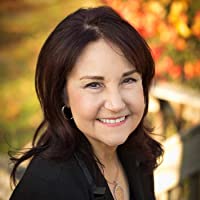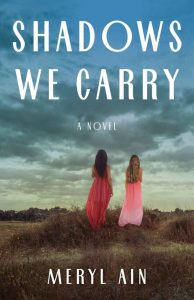Commack resident pens coming-of-age novel, ‘Shadows We Carry’
Reviewed by Jeffrey Sanzel
Meryl Ain’s debut novel, The Takeaway Men (2020), focused on immigrants Aron and Edyta (Judy) Lubinksi and their twin daughters, Bronka and Johanna. Refugees from Hitler’s Europe, the family settles with Aron’s cousins in Bellerose, Queens.

The absorbing story traced their struggles with adjusting to the new world and the burdens and guilt related to survival. Dealing with both the aftermath of the Nazi genocide and the rising Red Scare during the Cold War, The Takeaway Men offered a vivid portrait of a family in transition and ends in 1962.
Ain’s sequel, Shadows We Carry (SparkPress) picks up a year later for a brief prologue on the day of President Kennedy’s assignation. As the teenage Bronka states: “This is the end of the world … Nothing will ever be the same again.”
In Shadows We Carry, Ain focuses on Bronka, the more serious of the twins. The narrative follows the young woman’s journey from the late 1960s to the early 1980s. Ain once again displays her deft gift for presenting the intersection of historical events and cultural awareness.
The sisters are a portrait in contrast. Bronka studies history and political science, aspiring to a career in journalism. Johanna (called “JoJo”) studies music education but has no desire to teach. However, her musical theatre dreams are derailed by a pregnancy, leading to an alternately fulfilling and frustrating married life.
Bronka’s odyssey takes her through a range of personal and professional obstacles. A well-drawn character, complicated yet likable, she is a good but flawed individual, often getting in her own way—a case of wrong for the right reasons. Even with her strong Jewish identity, she tends to seek romance with unavailable men. The first is Ned, the Queen’s College newspaper editor-in-chief and a graduating senior. Later, she falls for a priest, the charismatic Father Stan. Even more importantly, Bronka represents the pull between career and homemaking: her passion for making a life in the news world versus her desire for a traditional family constantly battles.
Shadows We Carry also emphasizes the age of rebellion, reflecting an era of burgeoning self-discovery. Bronka’s neighbor and lifelong friend, Mindy, a middle-class version of anti-establishment, confronts Bronka with a hard truth: “Look, my mother and Tina Rosen and her sisters will all end up in boxes. It’s up to you whether you do or not. I think both of you could go either way. But I sure as hell will not. I’m going to find a different path. But first, I have to find out who I really am.”
 In search of self, Bronka is unsure of her niche. Too intellectually curious to accept a narrow conservative marriage, she is conversely uncomfortable with the free-love, drug-taking hippie element. She constantly faces less than thinly veiled chauvinism and misogyny.
In search of self, Bronka is unsure of her niche. Too intellectually curious to accept a narrow conservative marriage, she is conversely uncomfortable with the free-love, drug-taking hippie element. She constantly faces less than thinly veiled chauvinism and misogyny.
Ain’s gift is the ability to veer from domestic drama to social and political issues. Whether addressing the mother’s Catholic heritage but embracement of Judaism (or the priest’s mirrored journey), she delves into the psychological turmoil of her characters.
Mother Judy clings to an outdated vision of what women can be, subsuming her dreams to the needs of her often taciturn and haunted husband, Aron. Residuals of the Communist Witch Hunt and the search for Nazi War criminals play out against the age of the Viet Nam War.
Canvassing for Eugene McCarthy, along with the assassinations of Martin Luther King and Robert Kennedy, are affecting milestones. The beginning of the AIDS crisis is touched upon in a subtle but powerful stroke.
An interesting event occurs in 1973 when Bronka covers the renaming of the Nazi streets in Yaphank’s Fatherland Gardens. She is accompanied by a photographer unaware of his father’s direct connection to Auschwitz.
If The Takeaway Men focuses on the immigrant experience in the post-1945 world, then Shadows We Carry highlights the assimilating America of the 1960s and early 1970s. Its quick, taut chapters reflect the peripatetic and energetic pacing of the latter part of the 20th century. A book of identity, it asks the twin questions “Can you ever escape history?” and “Can you ever escape your history?”
A smart and welcome coming-of-age novel, Shadows We Carry is available on Amazon.com.







